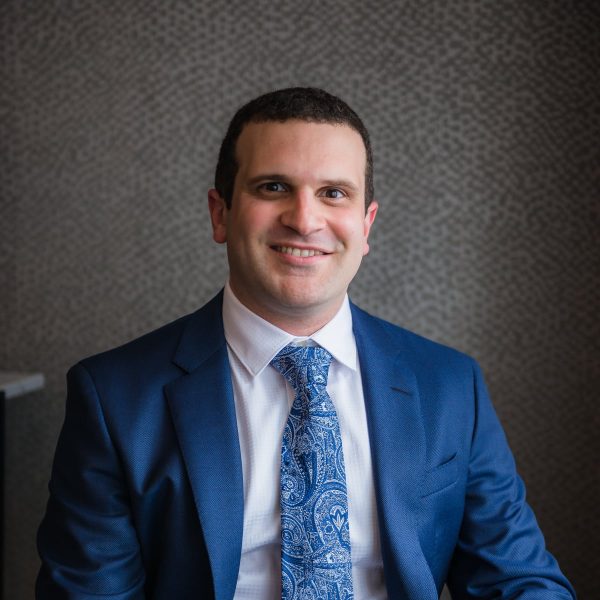Breast Cancer
With an aesthetic approach to breast cancer removal and breast conservation, Dr Ruben Cohen-Hallaleh focuses on the best possible outcomes for their patients.
Specialist Breast Cancer Surgeon
Breast cancer is the most common cancer affecting Australian women.
In 2021, it is projected that 20,030 people will be diagnosed with breast cancer, including 19,866 women and 164 men. An average of 55 people per day.
It is important to remember that most people survive breast cancer. The latest statistics show that the five-year relative survival rate for women diagnosed with breast cancer in 2013-2017 was 91.5%. Of course, many people live long and healthy lives well beyond this period.
A snapshot of breast cancer in Australia
- The number of people being diagnosed with breast cancer in Australia is increasing; however, the number of deaths from breast cancer is decreasing.
- The risk of developing breast cancer increases with age.
- The risk of being diagnosed with breast cancer by age 85 is 1-in-7 for women and 1-in-670 for men.
- The average age of first diagnosis of breast cancer for women is 62 years.
- In 2021, approximately 81% of new cases of breast cancer will develop in women aged 50 or above.
- The chance of surviving at least five years (five year relative survival) has increased from 74.0% in 1986-1990 to 91.5% in 2013-2017.
Causes
Breast cancer is the abnormal growth of the cells lining the breast lobules or ducts. These cells grow uncontrollably and have the potential to spread to other parts of the body. Both men and women can develop breast cancer, although it is uncommon in men. Transwomen, non-binary people can also get breast cancer.
Risk factors
Some factors that increase your risk of breast cancer include:
- Increasing age
- Family history
- Inheritance of mutations in the genes BRCA2, BRCA1 and CHEK2
- Exposure to female hormones (natural and administered)
- Starting your period before the age of 12
- A previous breast cancer diagnosis
- Past-history of certain non-cancerous breast conditions
Lifestyle factors that can also slightly increase the risk of breast cancer in women and men include:
- Being overweight
- Not enough physical activity
- Drinking alcohol
- There is also an association with some benign breast disease and past exposure to radiation
Symptoms
Some people have no symptoms and the cancer is found during a screening mammogram or a physical examination by a doctor.
If you do have symptoms, they could include:
- New lumps or thickening in the breast, especially if in only one breast.
- Nipple sores, change in shape of the nipple.
- Nipple discharge or turning in.
- Changes in the size or shape of the breast.
- Skin of the breast dimpling.
- Discomfort or swelling in the armpit.
- Rash or red swollen breasts.
- Ongoing pain that is not related to your menstrual cycle that remains after your period and occurs in only one breast.
Diagnosis
Dr Cohen-Hallaleh performs ‘Triple Assessment’, which includes clinical diagnosis (history and examination), imaging (ultrasound, mammogram, MRI) and pathology (biopsy).
Breast cancer surgical techniques
The main options for breast cancer surgery include Breast Conserving Surgery (BCS) and Total Mastectomy. BCS is an operation to remove the cancer and some normal tissue around it, but not the whole breast itself, thereby “conserving the breast”. Total mastectomy, however, is removal of the whole breast.
Oncoplastic breast surgery techniques can be adopted to maintain a good cosmetic outcome after surgery and is now regarded as the modern standard of care for breast cancer surgery. If a total mastectomy is required, breast reconstruction is routinely offered.
What is oncoplastic breast surgery?
Oncoplastic breast surgery combines plastic surgery techniques with breast surgery to both remove the cancer and reconstruct and reshape the breast. It can be useful for achieving a good cosmetic outcome in many women who choose partial mastectomy, such as those who have:
- Smaller breasts, where removing even a small tumour is likely to have a visible impact.
- Breast cancer in an especially visible place, such as high on the chest wall, on the inner portion of the breast, or close to the nipple.
- Mid- to large-sized breasts and the need to have a large amount of tissue (20% to 50%) removed from the affected breast.
- Chemotherapy before surgery (called neoadjuvant chemotherapy) that shrinks the cancer enough to make lumpectomy possible.
- Existing issues with their breasts, such as excessive sagging (ptosis), very large size (macromastia), or obvious lack of symmetry (balance), which could be addressed at the same time the cancer is removed.
Staging
Staging involves assessing whether the breast cancer has spread to the draining lymph nodes under the arm. A CT scan of the chest and abdomen, along with a bone scan are done to check the sites to which breast cancers most commonly spread.
Surgery
For localised breast cancer, the most extensive surgical option is to remove the breast and lymph nodes under the arm. When part of the breast is removed, it is referred to as breast conserving surgery. Radiotherapy is generally recommended after breast conserving surgery. When the whole breast is removed it is called a total mastectomy.
Oncoplastic surgery (breast protheses and reconstruction)
Before or after surgery you may think about how to restore your breast shape. You may consider a breast prosthesis / implants or reconstruction. This can be performed after breast cancer surgery or even during it.
Chemotherapy
Chemotherapy may be used to help shrink the cancer before surgery, if the risk of cancer returning is high or if the cancer returns after surgery or radiation therapy. It may also be used if the cancer is HER2 positive or does not respond to hormone therapy.
Radiation therapy (radiotherapy)
Radiation therapy (radiotherapy) is recommended after breast-conserving surgery to help destroy any undetected cancer. It is also recommended if lymph nodes were removed from under the arm and there is a risk that the cancer will return to this area. Radiation therapy can sometimes be used after a mastectomy if there is a risk of the cancer returning to the chest area.
Hormone therapy
Hormone therapy uses drugs to reduce the levels of female hormones in the body. This helps to stop or slow the growth of hormone receptor positive cancer cells. The type of hormone therapy you have will depend on your age, the type of breast cancer and whether you have reached menopause.
Targeted therapy
Targeted therapy drugs attack specific targets inside cancer cells. The drugs that are currently available are only useful for HER2 positive breast cancer.

Dr Ruben Cohen-Hallaleh
Sydney surgeon and educator, Dr Ruben Cohen-Hallaleh specialises in breast, endocrine, and general surgery. He brings together the latest in surgical techniques and non-invasive treatments with a careful consideration for each patient and their unique circumstance.
Specialist care with a dedicated and friendly team
Have some questions or looking to request an appointment?
Get in touch and our friendly staff can assist.
